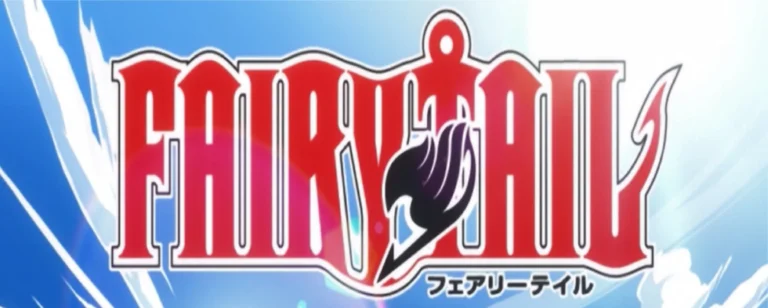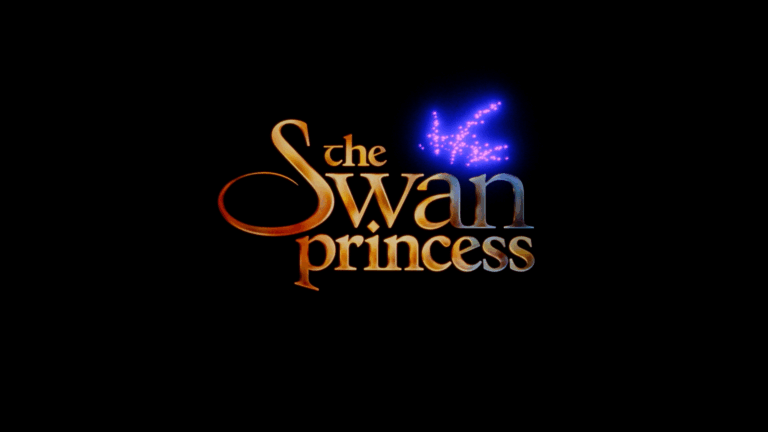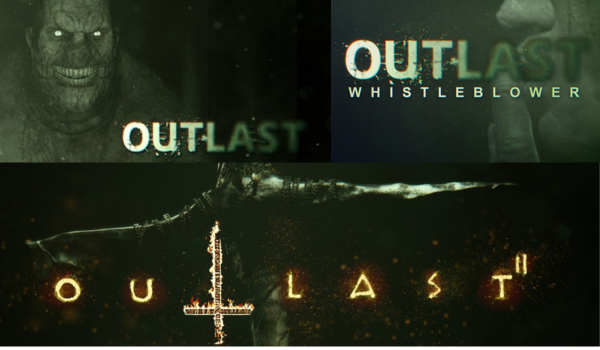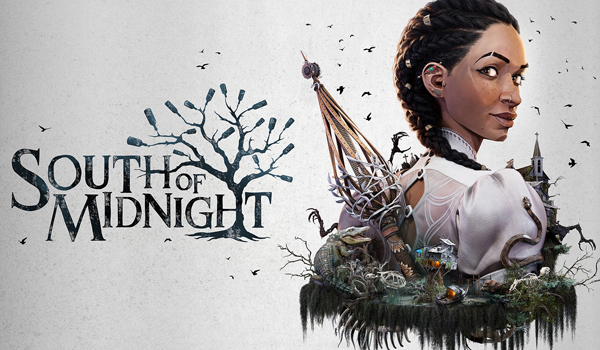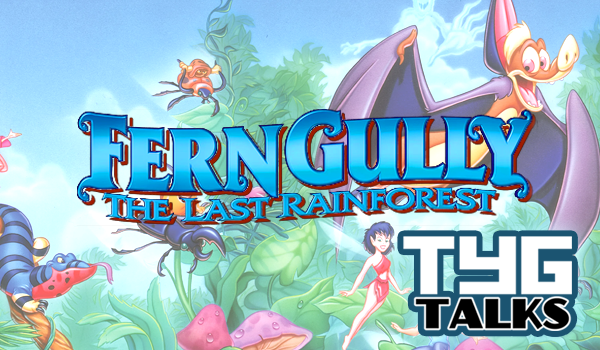
In a world where humans and robots share equal rights, a string of murders leads Inspector Gesicht to to question whether a robot can truly feel hatred. Netflix’s Pluto dropped late 2023 and I finally found the time to sit down and watch the eight-episode series. Let me tell you now, I was not expecting to find myself so emotionally moved.
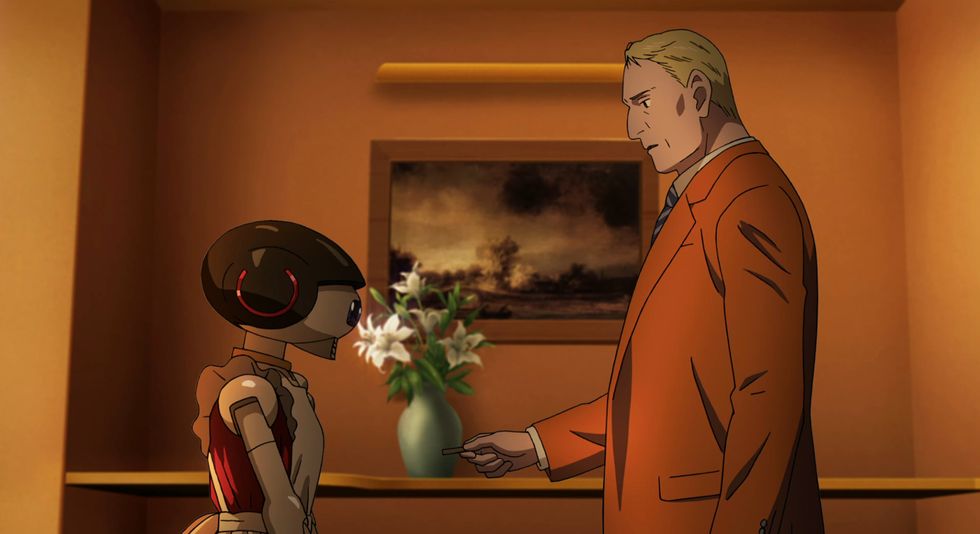
I didn’t do a lot of research going in, and the series doesn’t establish the world straight away. Rather it lets you pick it up through context clues, so by the end of the first episode you understand. Robots and humans may share the same rights, but there is still prejudice among certain groups.
Europol agent Gesicht is sets off on the trail of a series of murders of both robots and humans and comes up with a common link; all played pivotal roles in the 39th Central Asian war four years prior. A role that includes himself.
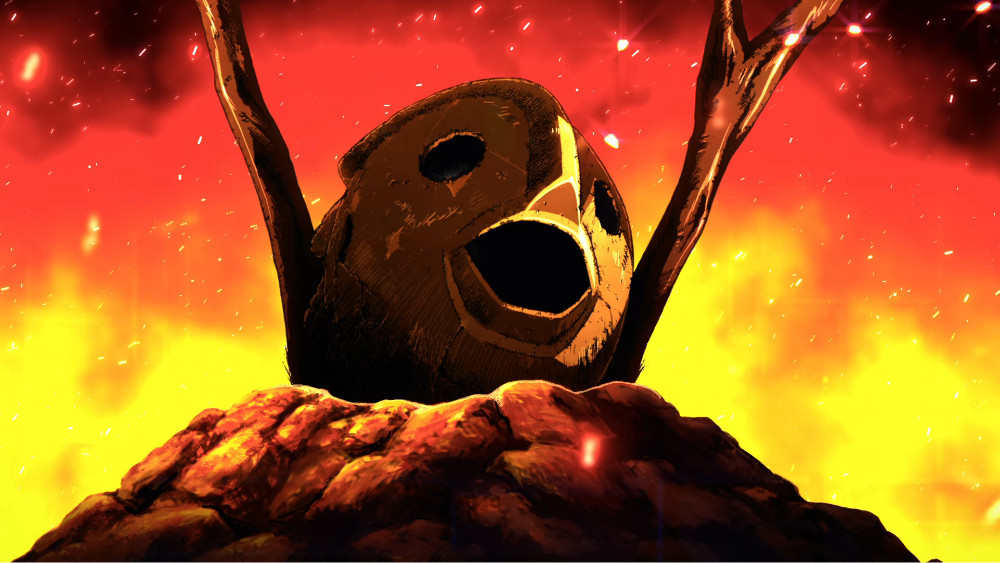
The mystery comes from the fact that a human couldn’t have accomplished some of the feats required, but a robot is unable to physically harm humans, a base trait inserted into every core AI. The one exception is the brilliantly creepy Brau-1589 who plays a Hannibal Lecter-type role for Inspector Geischt. When the titular Pluto does appear, their identity is hidden and they appear to be more of a force of nature than anything else, helping add to the mystery.
It was about halfway through Pluto that I realised that one of the characters, Atom, had a more than passing resemblance to another famous anime/manga character, Astro Boy.
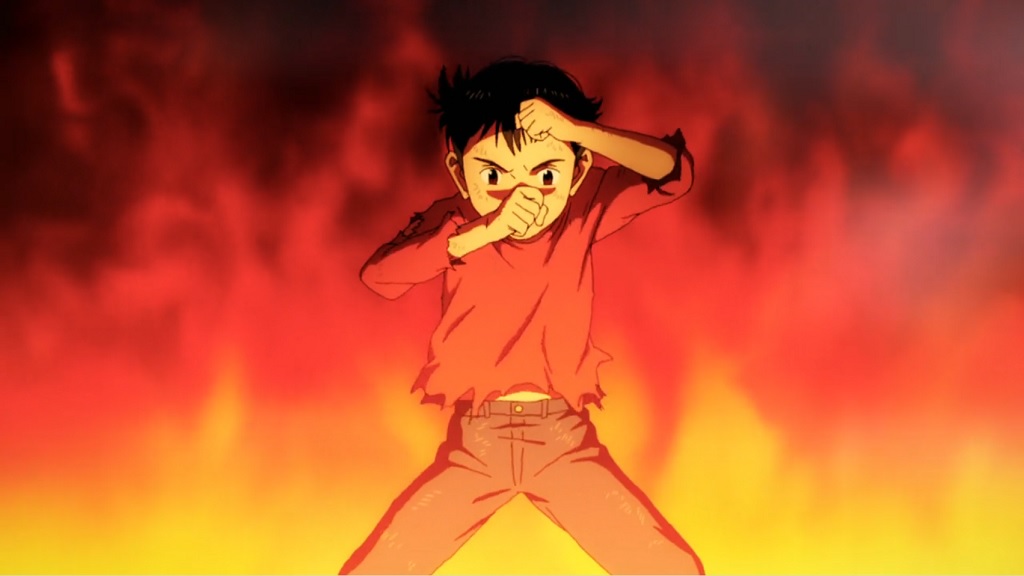
Not familiar with Osamu Tezuka’s Astro Boy I did a quick Google search and found out that Pluto was a retelling of an Astro Boy arc, “The Greatest Robot on Earth”. I was fascinated from this point on. The writers had taken this light-hearted and nonsense kids’ show and made a gritty, grounded, murder mystery shifting the main character focus. Gesicht was a minor role in the original story and, in Pluto, he carries the series well and is fleshed out so much more.
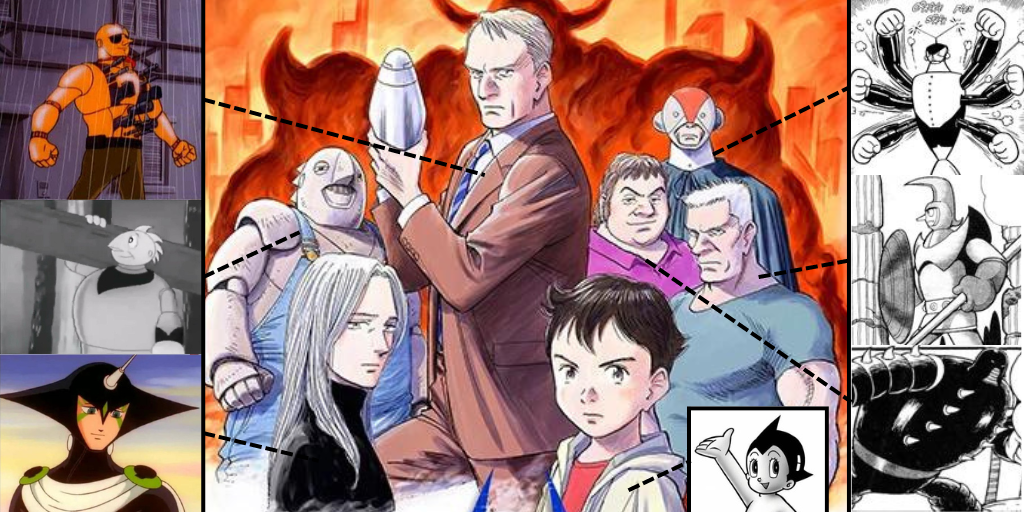
The plot has a surprising amount of heart. In the first episode alone the second half focuses on North #2, an old combat-class robot who is tired of war and makes a living as a butler. His latest client is an elderly composer who gets outraged when a “simple machine” tries to learn music. Throughout the episode, their relationship deepens into a father-son dynamic, ultimately to a tragic conclusion.
The series is filled with small moments like this, whereas the original (Astro Boy) story introduced the robots to be killed off immediately (in rather brutal ways). Pluto lets you feel for them and love them, so when the inevitable happens, it hurts.
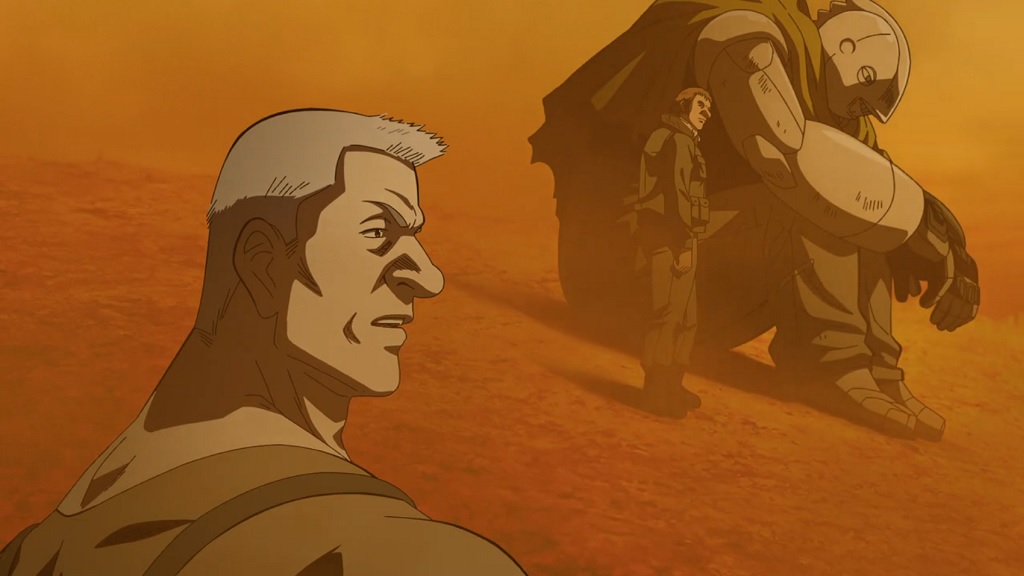
The animation quality is exceptional, invoking a modern twist on Osamu’s designs and some great mechanical designs. The music is a treat as well, with an ominous title track which repeats when the titular villain is onscreen.
Going down the cast is a who’s who of talent. If you watched anime in the past few years you’ll hear some familiar talent here, including the unique tones of Keith David playing Doctor Tenma.
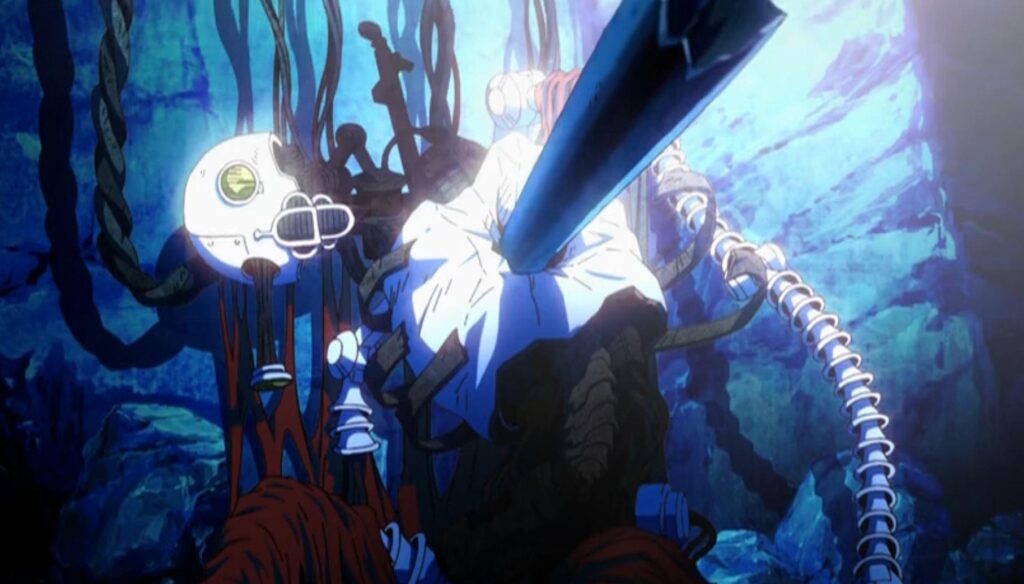
There was a bit of social commentary hidden in as well. A major point was the “United States of Thracia” accusing the kingdom of Persia of building robots of mass destruction, leading to a series of events that caused the 39th Central Asian War. I see what you did there Pluto. Wink.
There are a large number of plot holes, unfortunately. There were multiple times they had Pluto in a vulnerable position but decided not to stop them. Sometimes, the villain’s plan required a god-level knowledge of everyone’s whereabouts and expected reactions, but the rest of the story is so good I gave Pluto a free pass.

Coming in with eight episodes, I thought Pluto would be a quick watch not realising they were an hour each, but as soon as it ended, I wanted to keep going. The mystery, plot and characters kept me hooked. More than the story itself, I loved the concept the writers took. They took a single arc of an established show and fleshed it out to give it more heart and personality and make it hit harder than expected. This leads to the question, if you could flesh out one story from your childhood, which one would you do?

Watch It Now: Netflix

